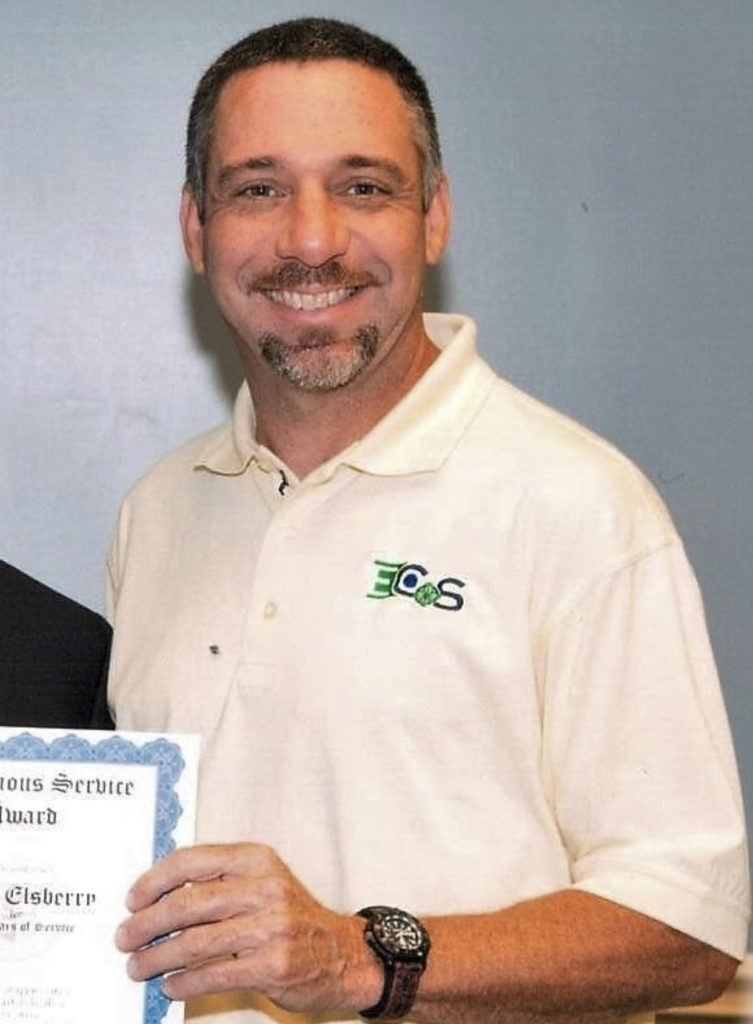
The Chattooga County Board of Education has spent the past six months in a transition period unlike any in recent memory. Board Chairman John Agnew’s two years of experience mark the ONLY experience contained by the four remaining members following the resignation of former board member John Turner. With a combined two years of experience between four people, and the looming budget crises facing the board, the appointment of former board member Eddie Elsberry brings in some much needed insight into board operations for the current staff. Elsberry has been officially sworn in and will participate in the July meeting to be held Thursday, July 18th.
Elsberry served on the board during one of its darkest periods. Between 2004 and 2012, the entire state of Georgia dealt with Austerity cuts that crippled many school districts. Year after year brought additional cuts, additional layoffs to faculty, reduction in programs and left Chattooga with a crumbling infrastructure that was financially unsustainable. Elsberry and the board were faced with a bleak decision in 2009 when the $1 million dollars remaining in the school’s Reserve Fund was simply not enough to cover the operational deficit and the repair bills on the aging high school were mounting every month.
AllOnGeorgia spoke with Elsberry about his past experiences with the board, the hurdles they overcame, and some silver lining on the storm clouds currently circling the school system.
Bigger Problems to Solve
For Chattooga, the school’s problems extended far beyond the grade sheet and the bank balance. Elsberry recalls one of the biggest struggles the board faced, a complete absence of pride and cohesion within the school system.
AOG: What was the biggest struggle facing the Board during your previous tenure?
Elsberry: “Our biggest problem was the perception of our schools; to the community and other schools around us. Our high school was considered thuggish and we constantly had discipline issues as well as theft in the school. I remember being called by a friend from a school in our region. We had a basketball game against them that week. They had heard about the visitor locker rooms and buses at CHS getting broken into and asked me “is it OK for their son to bring his iPod and leave it in the dressing room?” Unfortunately, I had to advise them to leave nothing of value unattended. This is that moment, as a BOE member, when you know we have to work on the perception and culture of the school system.”
This problem in culture and perception did not appear suddenly and the solution would not be quick or easy. Elsberry points to cohesion originating from a common vision that helped right the ship.
AOG: How did the Board confront this issue?
Elsberry: “The change in the perception of our schools was addressed by creating a culture of pride and respect. Everyone had to buy in and then, as someone said, “We need everyone on the boat and all rowing in the same direction”. Our people were always rowing, it just seemed like there was no common and clear direction to row. The community, the administration, the teachers and the kids began to buy into the pride of who we are and what we stand for. Things started changing in amazing ways. The new high school seems to be the piece that started a rebuilding process to give students ownership in the schools. Our students had something to be proud of and it showed that they were taking pride in being part of the Tribe. Today, Chattooga is no longer considered decaying or a place where thugs reside. Now, other systems want to come to our house and they want to know how we turned around something in the worst possible time to do it.”
Funding Cuts Created Massive Wounds
The budgeting crises faced by Elsberry and the previous board began before his tenure started in 2004. While crediting the prior board and superintendent with handling the early period of Austerity cuts and reductions to QBE funding, Elsberry points out the perfect storm that formed with the building of the brand new Leroy Massey Elementary that coincided with the ongoing reductions in revenue leading to a 5-year financial decline that simply overwhelmed the low-income school district.
AOG: Explain the financial struggles you faced during your previous time on the board.
Elsberry: “Austerity cuts and QBE partial funding began in 2002-2003. These were devastating to Chattooga as well as many other schools in Georgia. Luckily, then superintendent, Mr. Poole, and the BOE did a great job of dealing with those cuts in funding and managing our money. Mr. Poole and the BOE worked hard to acquire the land for LMES during a tough financial time, but it set forth the dedication toward improving our school facilities. I came on in 2004 and it was not a good time financially for public education in Georgia. The board before my term had laid some good groundwork and dealt with what was to be the start of a funding nightmare for education. Unfortunately, our system was one of the poorest of the poor. Cuts to our system hurt more than cuts to systems that had a larger reserve or larger tax base. Our system had to respond to avoid cutting services and positions while simultaneously trying to maintain old facilities, all while dealing with growth in our student enrollment numbers. The cuts kept coming year after year and in 2009 we were at a tipping point. We faced cutting 17 more positions on top of the many we had lost from 2002-2009 or, we had to find a solution by thinking outside the box. I believe the reserve fund balance in 2009 was right at $1 million, which was not enough to sustain continued then-current spending vs revenue.”
Bold Moves Created a Bright Future
With a Reserve Fund insufficient to sustain the school system’s operation, and more cuts to faculty looming, the board took into consideration a controversial solution that came in two parts. One was the dual SPLOST measure that would create the revenues needed to replace the crumbling Chattooga High School, which had become a financial drain on the system due to constant repairs and upgrades and a skyrocketing utility bill. The second part was an innovative schedule that would create more instructional time for students while possibly saving the school system over half a million dollars per year. The two-pronged attack on the Board’s financial crises proved to be more than anyone expected and saved countless jobs and educational programs.
AOG: Tell us about how the board faced those financial issues and the solutions you came up with?
Elsberry: “In 2008 we had to realize that things were not getting better and the hope for the state to fully fund our system was not foreseeable. We were in a position that would require more revenue AND less expenditure. We had cut all we could cut without increasing class size or eliminating vital programs like Chorus, Athletics, Band, arts, etc. Our buildings were old and we needed to build new facilities because the upkeep and energy use on the old facilities was eating us alive. We knew the taxpayers of the county needed as much relief from taxation as possible and the only way not to increase the tax revenue was to cut cost. We saw the potential for a dual SPLOST to build new facilities and the 4-day week could possibly show a half a million or more per year of savings to the operational cost of the system. Dr. Pullen and then BOE members Fuzz Anderson, Eddie Massey, Dot Johnson, Terry Money, myself worked together as a team to present a vision and a plan of action using SPLOST funding and operational savings to make possible what you see today in our system.”
The BOE held onto the vision of financial growth and school improvement as faces changed on the board itself. According to Elsberry, [Superintendent]Mr. Lenderman, and Board members Alma Lewis, Betsy Dellenbach, Ron Williams, Larry Weesner and John Agnew all played a crucial part in continuing the progress made between 2009 and 2012. Elsberry continued, “Today the system has a reserve of over $5 million, Kudos to the past years of work by the Superintendent, his team and all the BOE members to improve the facilities and education while growing the reserve.”
Laying a Foundation and then Moving On
After two terms on the Chattooga BOE during a tumultuous decade for the school system, Elsberry felt that the time had come to move on and give way to a fresh set of eyes. The constant battles with funding had left many of those board members feeling fatigued. Elsberry’s belief in term limits made the choice an easy one for him as the changing of the guard began in 2012. With a solid groundwork laid, Elsberry knew that the system was moving in the right direction and was ready to pass the baton.
AOG: What led to you deciding not to run for a third term?
Elsberry: “I am a huge proponent of term limits. I believe that part of what is wrong in our country government is that our elected officials become accustomed or blind or settled in the progress we are making after a while. The old way is not always the best way and fresh eyes often see new answers. I was personally feeling worn out from the 8 years of constant defunding from the state and trying to make it up from local coffers. I felt we had everything improving and that we had laid a great path to move forward on. People who shared and believed in what we had set out to do were willing to serve on the board so it only made sense to hand off the baton and let a teammate run with new ideas and a fresh-eyes view of public education.”
A Familiar Face and a Familiar Crisis.
With more budgeting woes looming for Board members, and the resignation of Mr. Turner, Elsberry finds himself back on the front lines in another battle for education funds and, more importantly, how those funds will be allocated. With eight years of service on the board, Elsberry’s experience is four times that of the combined board now. His knowledge of how the previous board dealt with the crises (and day to day operational procedures) could be a step in the right direction for county residents worried about tax hikes, program cuts, loss of promised facilities, and a break down in the cultural atmosphere that has completely transformed the system.
AOG: How would you like to see the current board face struggles like the budget crisis? Do you feel spending the Reserve surplus is a way to solve the budget crisis?
Elsbery: “It is tough. Luckily the current board has something we didn’t have during the lean years; a reserve of over $5 million dollars to operate out of if needed. $5+ Million sounds like a lot, and it is… but if you have to take $500k – $1 million a year away, it won’t last long and then you are back to where we were in 2009. Any and all School boards need to always think forward several years and not repeat a history that did not give our students the best facilities, resources, and education possible. Be open-minded and provide the best outcome for our students and community. Taxes are just not the answer. Our current School M&O is 12.683. We need to be good stewards of the taxes and make sure we do not have to increase this millage rate. Our county is very fortunate; Floyd County just approved a DECREASE of School M&O to 18.25. Walker County BOE has proposed an increase of 4.84 mills this year while Dade County is currently at around 15 mills. And Gordon County residents deal with a 19.172 millage rate. Our county property owners have been fortunate over the past 10 years that our taxes have been kept lower than counties around us.”
Smooth Sailing? Or the Calm Before the Storm?
Before problems can be solved, the board must find some method for working as a unit. With chaos surrounding the board and the decision to regress back to the schedule of 2009, the board must find common ground and work toward establishing its own vision and identity for Chattooga’s schools. The addition of Elsberry could settle the waters… or stir them up.
AOG: Why did you decide to serve again?
Elsberry: “The current board is extremely intelligent and deeply cares about our students and our community… but inexperienced as a board. That, coupled with the superintendent retiring, seems to indicate they need someone with experience. I don’t claim to have all the answers and the Lord knows I am most certainly not right all the time, but I feel I can offer some help as to what we have seen work and not work in the past with public education and Chattooga County. Mr. Hosmer has been as assistant superintendent for 8 years serving under 2 different superintendents, his experience is invaluable to our system during this time with the drastic amount of change in personnel, school schedule, budgets and board members. Knowing we have some continuity and a good foundation in place made my decision to offer my name to serve much easier.”
Hind Sight is… 2020
From the moment of his unanimous appointment to the 2019 BOE, many residents are already asking about his ambitions for the 2020 election. With two seats on the ballot, the election will be another turning point for Chattooga and Elsberry will be a key component. Whether he runs or not, that decision, and those he makes in the coming months, will have a measurable impact on how the next board chooses to guide the schools.
AOG: Looking ahead to 2020, do you have any plans to run for the seat?
Elsberry: “At this time, I have no plans to seek any office in the next election…
but I always like to keep my options open.”











